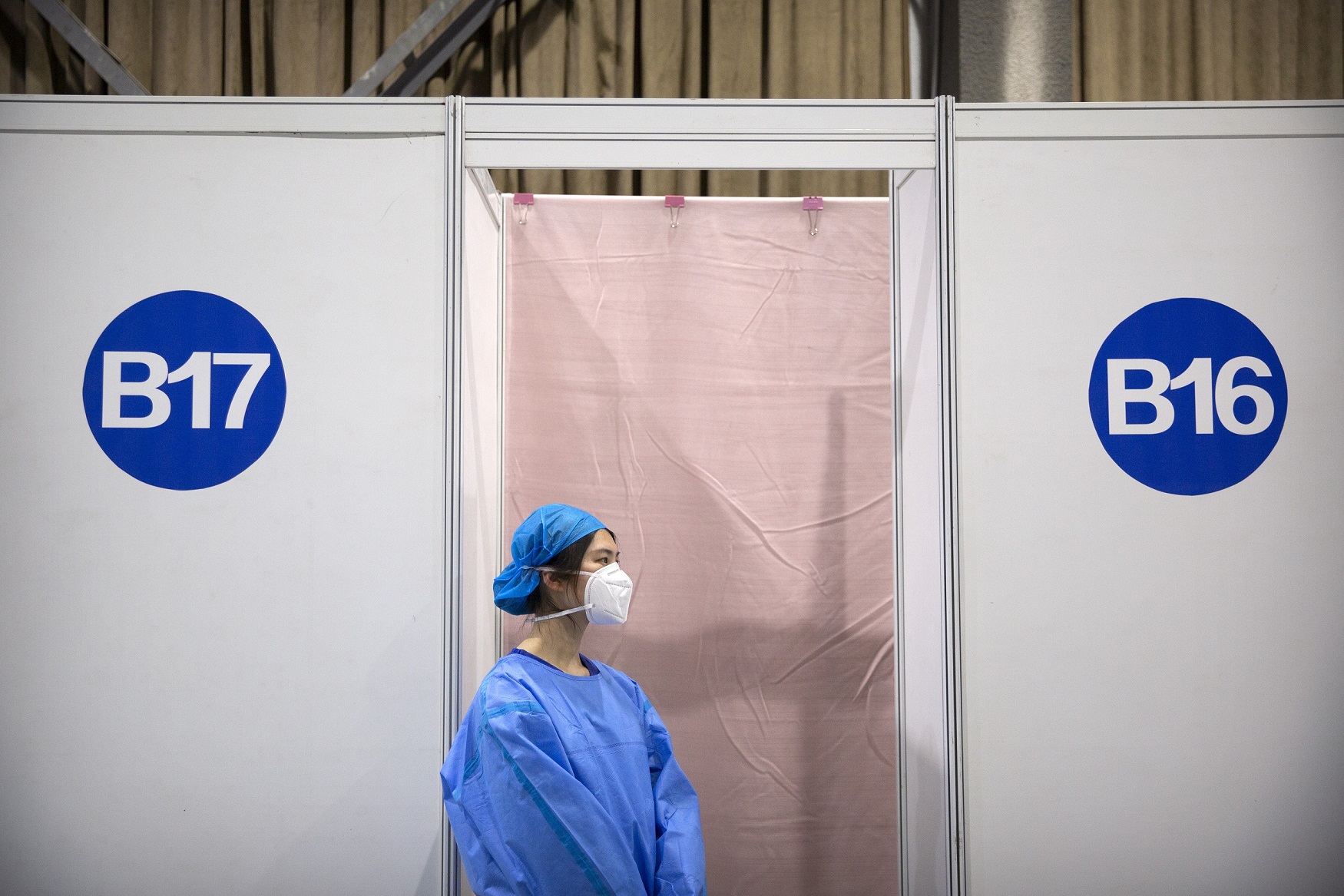(ترجم هذا المقال بالتعاون مع نيمان ريبورتس - جامعة هارفارد).
حازت صحافة البيانات على حضور بارز خلال الموجة الأولى من تفشي جائحة فيروس كورونا حول العالم، إذ تعزّز دورها وتعاظمت أهميتها، لا سيما أنها تنطلق من ادعاء أوّلي يقتضي الالتزام بتقصي الأدلة في التقارير المعنية بتغطية تطورات جائحة "كوفيد-19" وانتشارها. فباتت الأشكال والرسومات البيانية عنصرًا أساسيًّا في النشرات اليومية لتوضيح أعداد الإصابات بالعدوى، والحالات التي تخضع للرعاية في المستشفيات، وعدد الوفيات، الأمر الذي سمح بتداولها بشكل أوسع بين الناس في نقاشاتهم، أو عبر التفاعل معها على وسائل التواصل الاجتماعي.
لقد رسمت الأرقام الواردة من السلطات المحلية، والتي يستخدمها ويعرضها صحفيو البيانات، صورة واضحة للجميع بشأن فظاعة هذه الجائحة وآثارها في مختلف أرجاء العالم، إلا أنها في الوقت ذاته انطوت على مخاطرة باحتمال تقديم صورة مضللة عن وضع المدينة أو المنطقة أو الدولة المعنية، وكيفية تعاملها مع الفيروس.
من الضروري مقاربة دور وأثر صحافة البيانات عبر فهم علاقتها بالسمات الأساسية الغامضة -إلى حدّ كبير- لفيروس كورونا الجديد في الموجة الأولى من الجائحة. فقد تزايد تعطش الناس في ظل الجائحة إلى الأخبار المتعلقة بالفيروس، بسبب تطلعهم إلى معرفة أي تطورات أو معلومات جديدة عن الوباء بالشكل الذي يساعدهم على التكيف مع واقع جديد. واستمر هذا الهوس بالأخبار إلى أن خبا بعد عدة أشهر.
أما في النصف الثاني من العام 2020، فقد واجهت العديد من الدول موجة جديدة من انتشار العدوى أشدّ ضراوة من الموجة الأولى. ومع حلول العام 2021 في ظل استمرار تأثير هذه الموجة، يتوجّب على صحفيي البيانات أن يبذلوا المزيد من الجهد عند تفسير آخر الأرقام ذات العلاقة بالجائحة، مستفيدين من حجم المعرفة المتوفرة حاليًّا بخصوص الفيروس وطبيعته والمرض الذي يسبّبه، إضافة إلى توخي الحذر المطلوب في التعامل مع أي معلومة ومساءلتها والتحقق منها.
الحديث عن حالات العدوى والوفيات
تقوم صحافة البيانات على معطًى معرفي أساسي يتعهّد بتقديم محتوى صحفي أكثر دقة وفائدة، وذلك عبر الاعتماد على طرق البحث في العلوم الاجتماعية من أجل تحليل البيانات الكمّية باستخدام الحاسوب. لكن الوفاء بذلك في تغطية جائحة "كوفيد-19" ليس بالأمر الهيّن، ويفرض تحديات عديدة، وعلى العاملين في صحافة البيانات خلال العام 2021 أن يطوروا ممارساتهم من أجل الحفاظ على المصداقية والموثوقية، وضمان الفائدة فيما يقدمونه. فالعامة اليوم أكثر رغبة في نقاش وتحليل البيانات المرتبطة بالوضع الوبائي والصحي، ولا يتعاطون معها بشكل سلبيّ بلا نقد أو مساءلة، كما أن توقعاتهم من الإعلام باتت أعلى.
هذه التحديات المتعلقة بتغطية "كوفيد-19" تسلط الضوء على عدة أولويات يلزم مراعاتها كي تحقق صحافة البيانات تقدمًا على هذا الصعيد، في مقدمتها الحاجة إلى الحذر عند التعامل مع البيانات المتعلقة بالصحة، إضافة إلى اكتساب الخبرات التي تساعد على فهمها وسبرها، والحرص على الشفافية عبر إدراك نقاط الضعف فيها.
لقد سلطت الجائحة الضوء على العديد من التحفظات حول صحافة البيانات، أهمُّها الحديثُ عن الحاجة الملحّة إلى البيانات الموثوقة. فقد اعتمد الصحفيون في تقاريرهم على بيانات من جهات حكومية، ومؤسسات علمية، ومنظمات عالمية، وجامعات، وغيرها، وذلك لبيان مدى تفشي الفيروس وكلفته على البشر، والضغط المترتب على المستشفيات جراء الجائحة.
لكن الإشكال الأساسي هنا أن تلك الأرقام المتعلقة بأعداد الحالات "لا معنى لها"، بحسب تعبير نيت سيلفر رئيس التحرير في موقع "فايف ثيرتي إيت"، وخاصة إذا ذكرت الأرقام في معرض عقد مقارنات بين دول وأخرى، إذ ثمة تباين كبير بين الدول في كيفية تعداد حالات العدوى، إلى جانب اعتماد هذه الأرقام بشكل أساسي على نطاق عمليات الفحص في كل منطقة.
كما أن إعداد التقارير حول أعداد الأشخاص الذين قضوا بسبب "كوفيد-19" يعتمد أيضًا على كيفية إحصاء تلك الوفيات، حيث يتم الاعتماد أحيانا على وجود فحص إيجابي بحمل المريض للفيروس. كما تراعي بعض الدول التفريق بين ما إذا كان "كوفيد-19" سبب الوفاة المباشر، أو أنه مجرد عامل مرضي إضافي في حالة المتوفَّى.
التعامل مع البيانات الرسمية
في الظروف التي تفرض نفسها على الناس وتدفعهم إلى البحث عن المعلومات الواضحة والموثوقة، فإن إعداد التقارير الصحفية حول جائحة "كوفيد-19" ورغم كل المحاذير حول طبيعة البيانات المتعلقة بها، لا يعني أننا نتعامل بالضرورة مع صحافة جيدة. خلال الموجة الأولى، تصدّرت العناوينَ -وعلى نحو يوميّ- الأرقامُ المتعلقة بحالات العدوى والوفيات والتي يعرضها الصحفيون بشكل حاسم ومليء بالثقة. في المقابل، عمدت بعض المؤسسات الإعلامية -مثل البي بي سي، والفايننشال تايمز، ونيويورك تايمز- إلى الحديث عن احتمال أن تكون معدلات الوفيات بالمرض أعلى من الأرقام المعلنة، بالنظر إلى اختلاف معايير إحصائها من مكان إلى آخر، وهذا ما يرى خبراء الصحة أنه المقاربة الأسلم عند الحديث عن وفيات كورونا.
لقد سلطت جائحة كورونا الضوء على التحديات المطروحة أمام صحافة البيانات، ولا سيما اعتمادها على البيانات الرسميّة، إضافة إلى العمل تحت ضغط الوقت والمصادر والمعرفة، وضعف القدرة على سبر المعطيات التي تقوم عليها البيانات التي يتعامل معها الصحفي.
بيد أن الفرصة ما تزال قائمة أمام صحافة البيانات لتجاوز هذه التحديات في العام 2021، عبر اتخاذ موقف أكثر حصافة إزاء البيانات الرسمية، والتحرّز عند تقديمها للقراء، وعدم التغاضي عن أي شكّ حولها. فإن لم يكن الصحفي قادرًا بنفسه على تحديد وتفسير أي تباينات شاذة في البيانات التي بين يديه، فسيسمع عنها حتمًا من العامّة عند اكتشافها.














![Palestinian journalists attempt to connect to the internet using their phones in Rafah on the southern Gaza Strip. [Said Khatib/AFP]](/sites/default/files/ajr/2025/34962UB-highres-1705225575%20Large.jpeg)


























